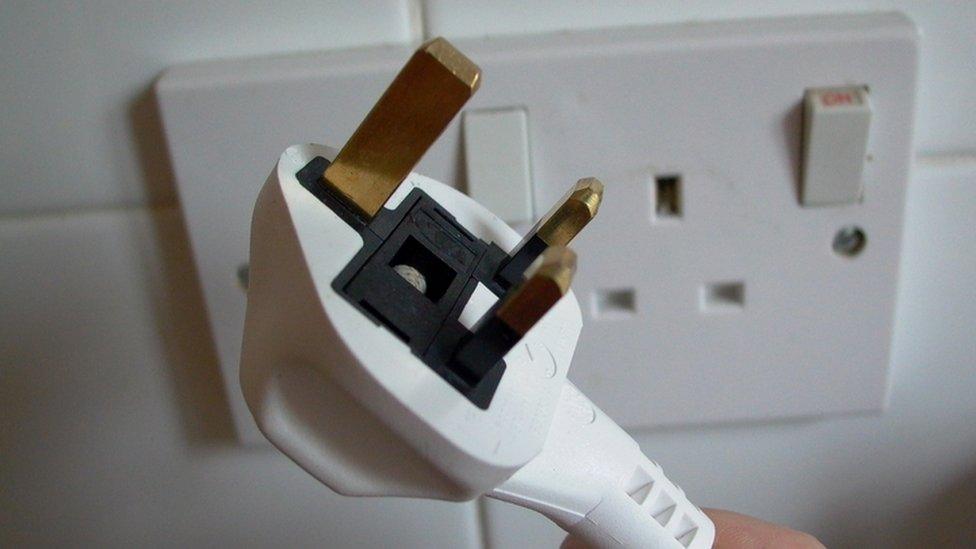SSE gas and electricity prices in Northern Ireland to rise again
- Published
- comments
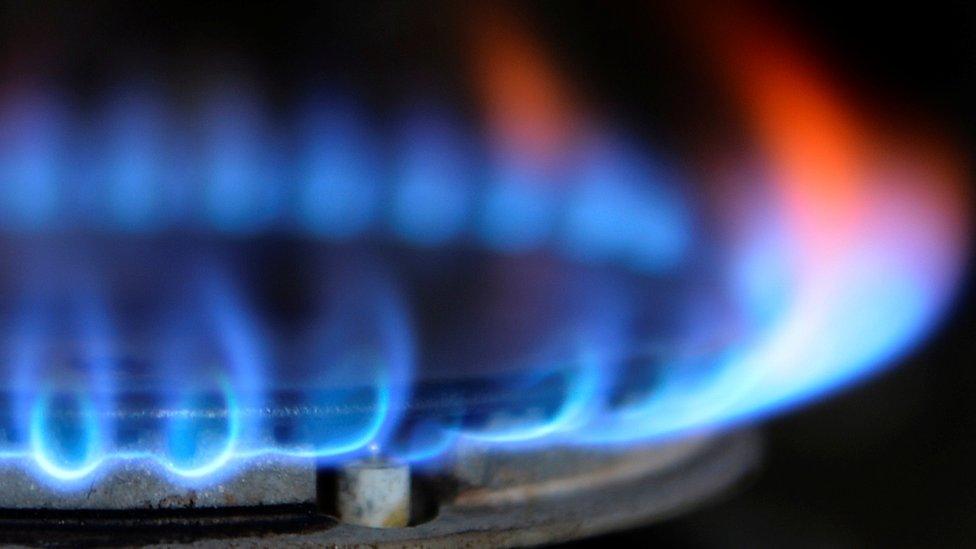
The latest increase will affect 188,000 homes in Northern Ireland
The energy company SSE Airtricity is putting up its gas and electricity prices in Northern Ireland again.
Gas prices will rise by 28.3% from 1 October and electricity prices will go up by 35.4% from the same date.
It comes after Ofgem announced the energy price cap in Great Britain will rise to £3,549 a year from October.
However, some consumers in NI will be the equivalent of £1,000 a year better off than customers in the rest of UK, the region's energy regulator has said.
The chief executive of the Utility Regulator, John French, has calculated that the equivalent combined gas and electricity customers in Northern Ireland will pay £2,393 a year from October.
"I fully recognise that this differential between Great Britain and Northern Ireland is cold-comfort to those who are struggling here," he added.
Peter McClenaghan, from the Consumer Council, said Northern Ireland was "facing into a very serious crisis this winter" and he is angry and fearful on behalf of consumers.
The Consumer Council provides advice to consumers and Mr McClenaghan said that "already many of our households are at the brink".
"This announcement means consumers in Belfast face combined annual gas and electricity bills in excess of £2,500 a year, with further price increases to come," he said.


Other companies will also be putting up their prices as they are buying energy in the same wholesale markets as SSE Airtricity.
Those wholesale markets are currently a horror show, suggesting that energy prices will continue rising steeply into the early months of next year.

SSE Airtricity is Northern Ireland's largest household gas supplier with about 188,000 customers.
Those customers have already seen the price they pay more than double since the spring of last year.
The Utility Regulator says the latest increase in the price of gas - the fifth since April 2021 - will be equivalent to another £351 a year.
Mr French said the wholesale gas market was "[continuing] to surge".
"[It] is producing prices 16 times higher than normal historic rates," he said.
"We will continue to do everything in our control to support consumers at this very difficult time."
The announcement by SSE Airtricity comes on the day Stormont Finance Minister Conor Murphy confirmed that the UK government would deliver an energy bill discount of £400 to help households in Northern Ireland that are struggling with the increasing cost of living.
But he said there was no guarantee that Northern Ireland households would receive the discount in October, when those in the rest of the UK are due to get it.

Donna Dugan, from Carrowdore, County Down, works full-time and cares for her mother Anne, 86, who has vascular dementia and Alzheimer's.
She says the price of home heating oil has "gone up a lot".
"We got an oil fill up just before the summer period - we normally pay a certain amount every month - and unfortunately this time we were £400 short, which is quite extraordinary for us.
"Over the summer, we have had the heating off completely and we've never had to do that before."
They have also reduced the number of baths Anne has to reduce costs, and she takes more showers instead.
Cost of living: Carers struggling with rising prices
Donna says the £400 energy bill discount would make a "huge difference".
She says it is imperative that "something is done really urgently" to tackle the issue.
"I worry that if mummy's situation deteriorates, the impact that will have on my ability to work.
"I need to work, it's not a choice for me to have reduced hours because we couldn't financially manage. I need to work full-time."
'Carers going hungry'
Craig Harrison, of Carers NI, said "carers are on their knees, financially".
"We had the worst rate of carer poverty of anywhere in the UK even before the cost of living crisis began to bite," he added.
"Carers' financial situation on all fronts has just deteriorated more and more since then."
He said day-to-day, carers are going hungry, because they cannot afford to buy food.
Mr Harrison said they were missing mortgage payments, and borrowing money from friends and family to get by.
"I'm even aware of female carers having to make their own sanitary products."

SSE Airtricity is also the second largest supplier of household electricity, with about 168,000 customers.
They will see their bills rise by the equivalent of another £330 a year.
'Wholesale market surging'
SSE Airtricity managing director Klair Neenan said: "It was hoped market volatility would ease but the global energy crisis continues to impact gas and electricity costs for all energy suppliers.
"We are acutely aware of the impact this has for households and are working hard to help where we can."
The company said any customer who was concerned or having difficulty with their energy costs should "please contact us and we will work with you to find a solution together".
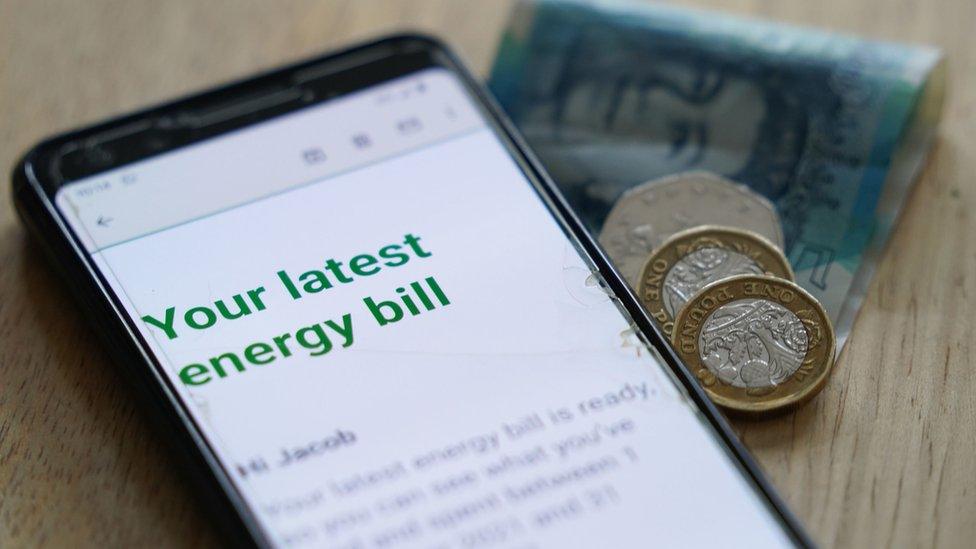
The Consumer Council says many households face spending more than £2,500 a year on energy
Two-thirds of homes in Northern Ireland use oil for their heating.
The Consumer Council tracks the price of home-heating oil and its data suggests that prices fell during July, roughly in line with the price of Brent crude oil.
But prices have started to increase again in the past two weeks.
'Simpler market'
The Northern Ireland energy market is very different from the rest of the UK for a variety of historical reasons.
The electricity market was liberalised much later than the rest of the UK; the former state-owned incumbent still has half the domestic market and there are only a handful of suppliers.
The gas network is a relatively recent development and there are still regulated monopoly suppliers in some areas.
That means the market is regulated differently from the rest of the UK, for example without the price cap mechanism.
Mr French believes that Northern Ireland's simpler market is part of the reason for the lower prices in Northern Ireland.
He told BBC News NI: "We price regulate one company at a time, so we are regulating SEE Airtricity at the moment, that was the announcement today.
"What they are doing in GB in terms of the price cap is looking at the 70 odd companies and try to give an announcement that covers the needs of those 70 companies."
He said that while the GB price cap is forecast to go towards £5,000 in January at the moment he does not see that in the current market for Northern Ireland.
It is difficult to give an overall energy cost comparison between Northern Ireland and GB because Northern Ireland is still heavily reliant on heating oil for home heating.
- Published26 August 2022
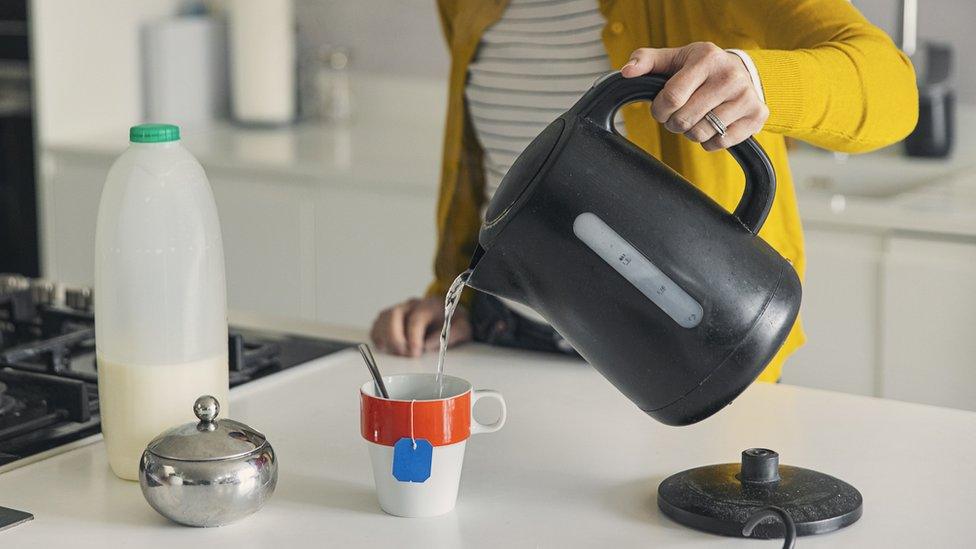
- Published26 August 2022
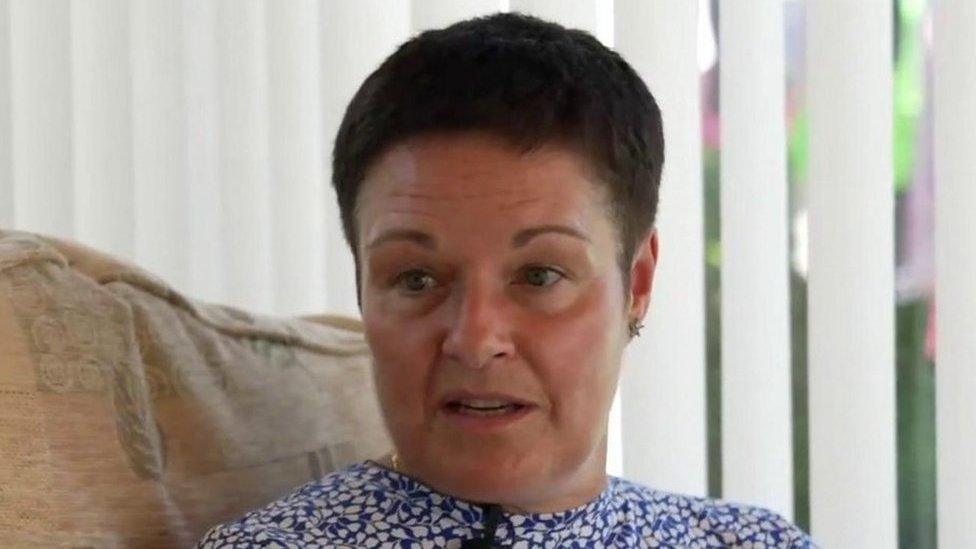
- Published1 June 2022

- Published8 September 2022
